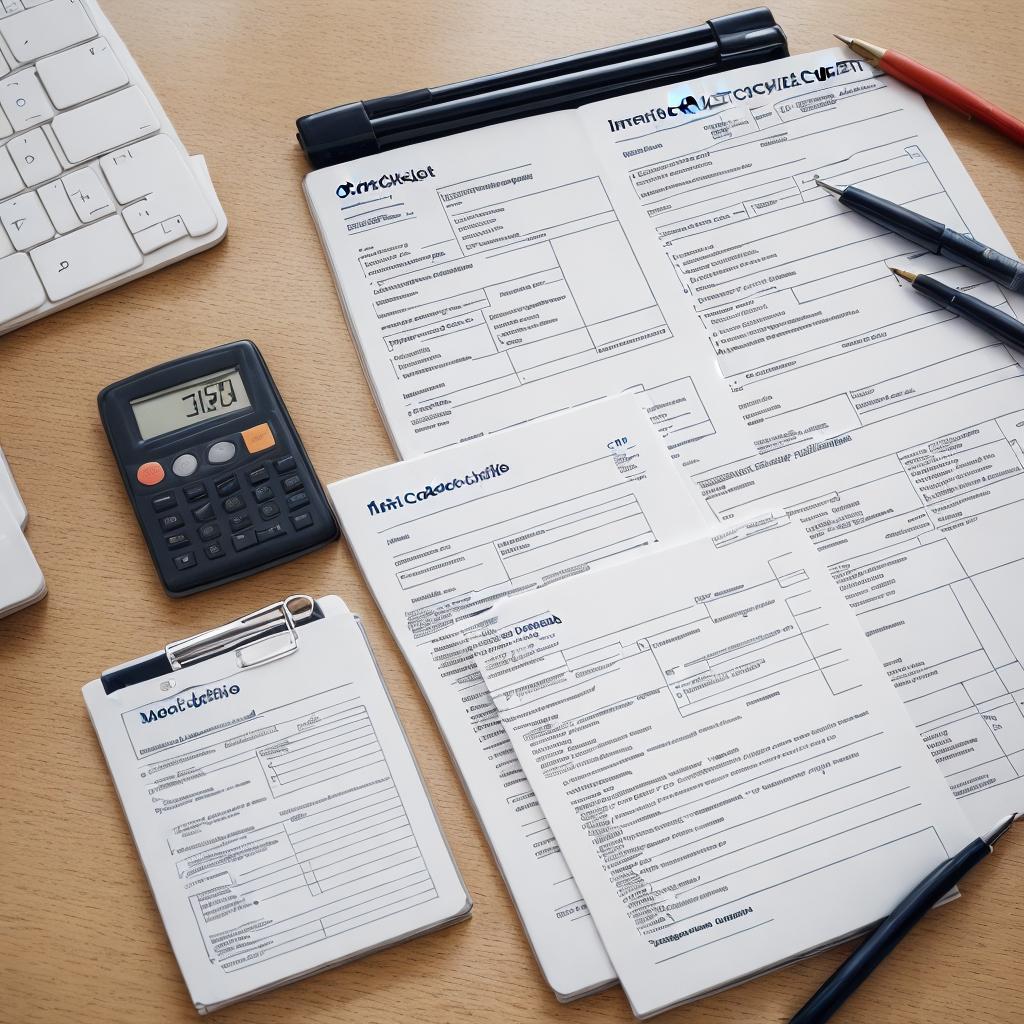Step-by-Step Guide: Medicaid Application Document Checklist

Are you ready to navigate the maze of paperwork for your Medicaid application? Look no further! This step-by-step guide will lead you through the process with ease.
Gather your personal information, organize financial documents, and collect proof of income. Don’t forget to obtain proof of your citizenship or immigration status.
Lastly, compile your medical and health insurance records. With this checklist in hand, you’ll be well-prepared to tackle the Medicaid application process.
Let’s get started!
Key Takeaways
- Personal information and eligibility verification documents, such as a social security card and proof of income and residency, are crucial for a smooth Medicaid application process.
- Gathering financial documents like bank statements, pay stubs, tax returns, and proof of assets helps organize and expedite the application process.
- Providing accurate and verifiable proof of income, such as pay stubs, tax returns, bank statements, and social security benefits verification, is essential for eligibility verification.
- Proof of citizenship or immigration status documents, including a U.S. birth certificate, U.S. passport, certificate of naturalization, or permanent resident card, are necessary to establish eligibility for Medicaid.
Gather Personal Information
To begin gathering personal information for your Medicaid application, you’ll need to gather documents such as your Social Security card, proof of income, and proof of residency. These documents are crucial in establishing your eligibility for Medicaid and ensuring a smooth application process.
Your Social Security card serves as proof of your identity and is necessary for verifying your personal information. Make sure you have a valid and up-to-date card before starting the application process.
Additionally, you’ll need to provide proof of your income, which can include pay stubs, tax returns, or a letter from your employer. This helps determine your financial eligibility for Medicaid.
Lastly, proof of residency is required to establish that you live in the state where you’re applying for Medicaid. This can be a utility bill, lease agreement, or any other official document that shows your current address.
Once you have gathered all these documents, you can move on to the next step of organizing your financial documents. This will help expedite the application process and ensure that all the necessary information is readily available.
Organize Financial Documents
Start by gathering all of your financial documents to organize them for your Medicaid application. This step is crucial as it ensures that you have all the necessary information readily available when filling out the application. Here is a list of the financial documents you’ll need:
- Bank statements: Gather statements from all of your bank accounts, including checking and savings accounts. This will help provide a clear picture of your current financial situation.
- Pay stubs: Collect your most recent pay stubs from all sources of income. This includes any wages, salaries, or self-employment income you receive.
- Tax returns: Retrieve copies of your tax returns from the past few years. These documents will provide information on your income, deductions, and credits.
- Proof of assets: Compile documents that prove any assets you own, such as property deeds, vehicle titles, or investment account statements.
Collect Proof of Income
How can you gather proof of income for your Medicaid application?
When applying for Medicaid, it’s important to provide accurate and verifiable proof of your income. This helps determine your eligibility and the level of assistance you may receive.
To collect proof of income, start by gathering documents such as pay stubs, tax returns, and bank statements. Pay stubs provide a detailed breakdown of your earnings, including any deductions. It’s recommended to include at least the most recent 30 days of pay stubs.
Tax returns are useful for documenting your income over the past year. Providing the most recent year’s tax return can help establish a consistent income pattern. Additionally, bank statements can serve as evidence of any income received from sources such as interest or dividends. It’s advised to include the most recent three months of bank statements.
If you receive Social Security benefits, you can obtain a benefit verification letter from the Social Security Administration. This letter provides the details of your benefits, including the amount and frequency of payments.
Obtain Proof of Citizenship or Immigration Status
You need to provide proof of your citizenship or immigration status in order to complete your Medicaid application. This is an important requirement as it helps ensure that the benefits are being provided to eligible individuals.
Here is a checklist of documents you can use to prove your citizenship or immigration status:
- U.S. birth certificate: If you were born in the United States, you can submit a copy of your birth certificate as proof of citizenship.
- U.S. passport: A valid U.S. passport can serve as proof of both citizenship and identity.
- Certificate of Naturalization: If you have become a U.S. citizen through the naturalization process, you should provide a copy of your Certificate of Naturalization.
- Permanent Resident Card: If you’re a lawful permanent resident, commonly known as a green card holder, you can submit a copy of your Permanent Resident Card as proof of immigration status.
It is important to note that the specific documents required may vary depending on your individual circumstances. It’s recommended to check with your state’s Medicaid office or website for a comprehensive list of acceptable documents.
Make sure to gather these documents before starting your Medicaid application to ensure a smooth and timely process.
Compile Medical and Health Insurance Records
To continue the Medicaid application process, gather your medical and health insurance records. This step is crucial in ensuring that you provide accurate and up-to-date information about your healthcare history and current coverage.
Start by collecting all your medical records, including doctor’s notes, laboratory test results, and any relevant imaging reports. These documents will help Medicaid determine your eligibility and provide the necessary information for them to assess your healthcare needs.
Next, gather all your health insurance records, including policy documents, premium payment receipts, and explanation of benefits statements. These records will help Medicaid determine if you meet the income and resource requirements for the program. They’ll also help them understand your current coverage and any out-of-pocket expenses you may have incurred.
It’s important to be thorough when compiling these records. Make sure to include all relevant documents, even if they may not seem important at first glance. Medicaid may request additional information during the application process, so having a comprehensive collection of records will help expedite the process.
Frequently Asked Questions
How Long Does the Medicaid Application Process Typically Take?
The Medicaid application process typically takes several weeks. You’ll need to gather the necessary documents, complete the application accurately, and submit it to your local Medicaid office. Processing times may vary, so be patient.
What Types of Medical Expenses Are Covered by Medicaid?
Medicaid covers a wide range of medical expenses, including doctor visits, hospital stays, prescription medications, lab tests, and preventive care. It also offers coverage for mental health services, nursing home care, and transportation to medical appointments.
Can I Apply for Medicaid if I Already Have Health Insurance?
Yes, you can still apply for Medicaid even if you already have health insurance. Medicaid can help cover additional costs that your insurance may not, such as copayments or deductibles.
What Are the Income Limits for Medicaid Eligibility?
You may be eligible for Medicaid based on your income. Medicaid income limits vary by state, household size, and other factors. It is important to check your state’s guidelines for specific eligibility requirements.
Are There Any Special Considerations for Immigrants Applying for Medicaid?
When immigrants apply for Medicaid, there are special considerations to keep in mind. Some immigrants may be eligible for coverage, depending on their immigration status. It’s important to understand the specific rules and requirements.



